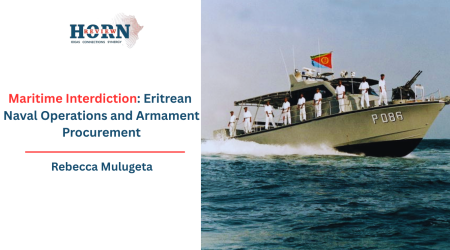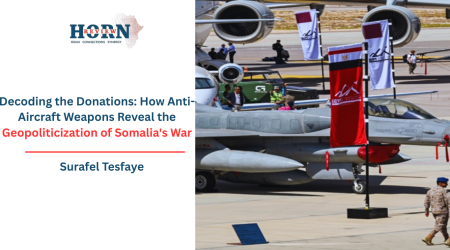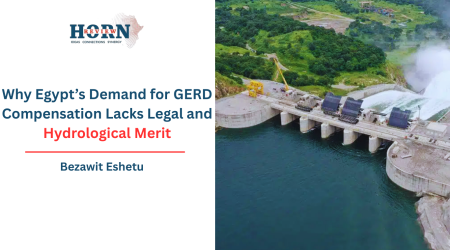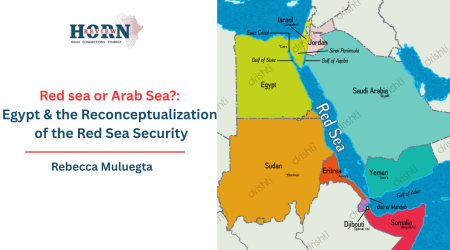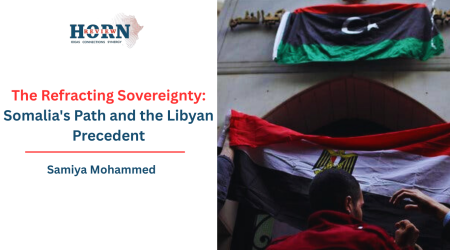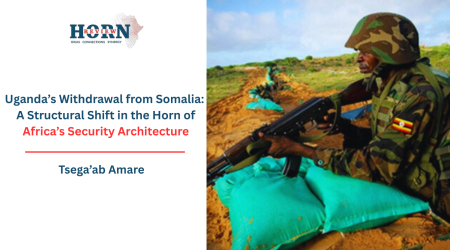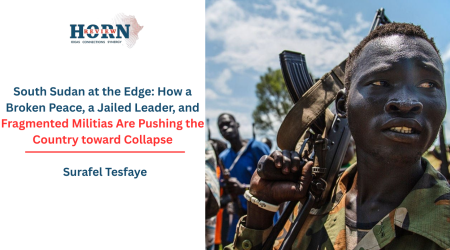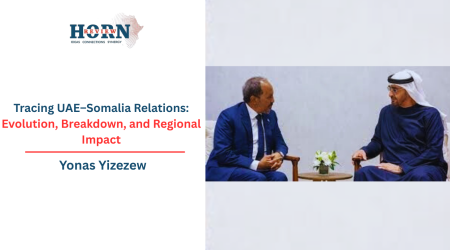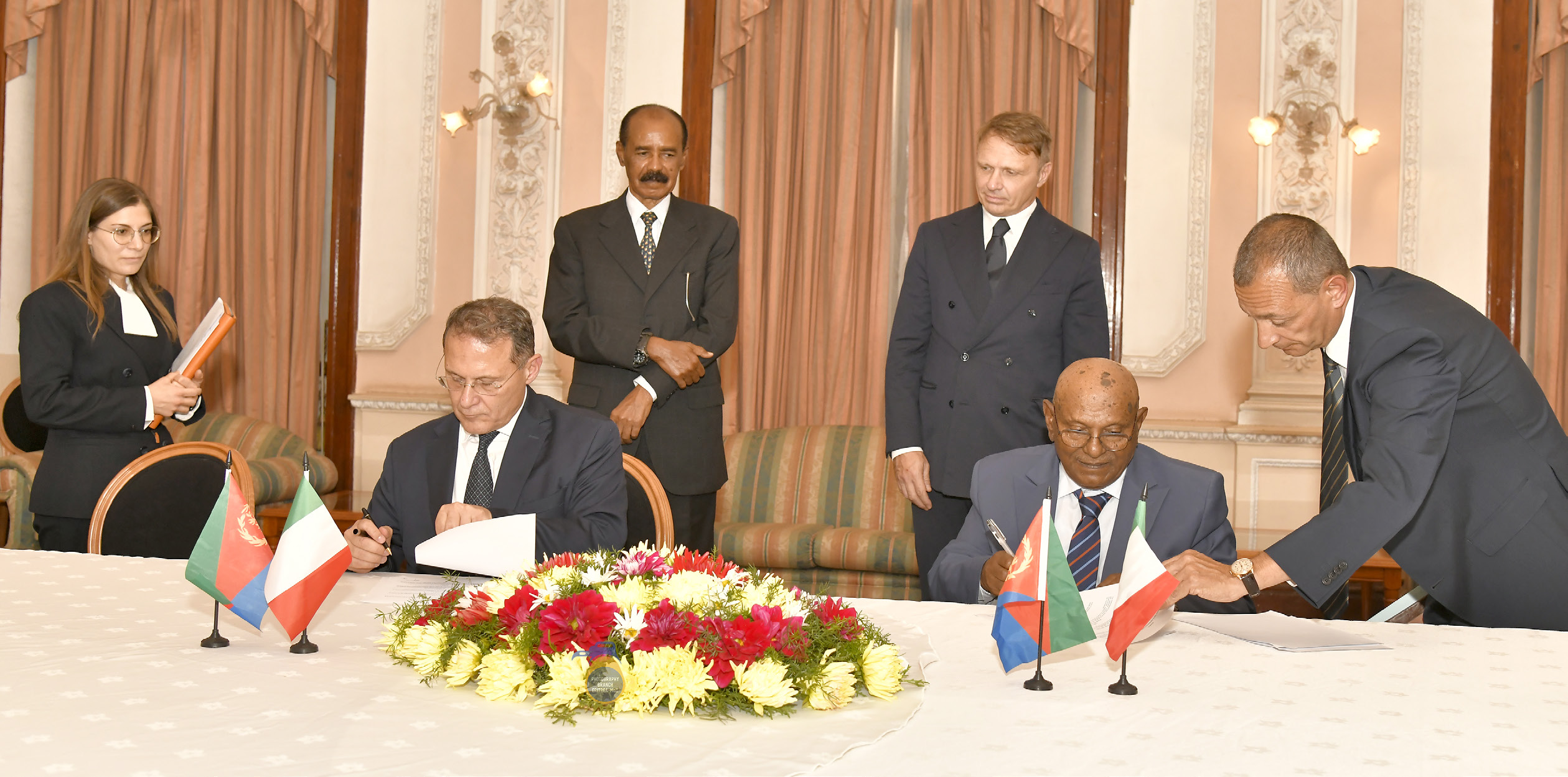
11
Aug
Bridging Past and Present: The Renewed Eritrea-Italy Partnership in a Regional Context
The ties between Eritrea and Italy, rooted in a complex and often painful colonial history, have recently entered a new phase of strategic engagement. As Eritrea navigates economic challenges and regional tensions, its leadership has chosen to revitalize relations with Italy – an actor whose influence in the Horn of Africa remains both symbolically charged and geopolitically significant.
This renewed engagement was formalized in Asmara, where President Isaias Afwerki hosted Italian officials at the Denden Guest House to sign a Comprehensive Plan of Action covering energy, mining, infrastructure, agriculture, and finance. While the official rhetoric emphasized partnership and progress, the broader implications of this accord warrant a more nuanced examination. Francesco Lollobrigida, Italy’s Minister of Agriculture, celebrated the agreement as a milestone, building on the dialogue initiated earlier in 2024 between President Isaias and Prime Minister Giorgia Meloni.
Eritrea, whose contemporary territorial contours were delineated under Italian colonial administration commencing in 1890, is presently courting Italy as a strategic partner with remarkable alacrity. The region’s historical tapestry is indelibly marked by Italy’s imperial ambitions and the seminal 1896 Battle of Adwa – a decisive moment when Ethiopian forces resolutely safeguarded their sovereignty against Italian incursion.
This episode has since epitomized African resilience and underscored the profound ramifications of colonial enterprise. Eritrea’s renewed openness to Italy compels reflection on how historical legacies continue to shape present-day engagements. Is this rapprochement a manifestation of pragmatic cooperation grounded in mutual benefit, or does it evoke unresolved tensions inherent in collective memory?
The ambit of the agreement – spanning maritime ports, fisheries, tourism, and regional peace initiatives – merits rigorous examination beyond the veneer of commercial exchange. Confronted with economic adversity and diplomatic isolation, Eritrea appears intent on cultivating diversified partnerships. Its narrative of historical grievances, notably the unfulfilled assurances of post-World War II self-determination, now accommodates Italy as a partner of choice. For Italy, this accord signifies a strategic re-engagement in a region steeped in historical significance, asserting itself as a Western actor committed to constructive collaboration with Asmara.
This development provokes critical inquiry: What underpins Italy’s renewed zeal for Eritrean infrastructure and maritime assets? Does it represent a bona fide investment in shared prosperity, or does it constitute a calculated maneuver within a broader geopolitical framework? And ultimately, who are the principal beneficiaries of this renewed alliance?
Ethiopia must contextualize these developments within the broader regional milieu. Despite the rapprochement embodied in the 2018 peace accord, the Ethiopia-Eritrea relationship remains fragile, characterized by intricate political dynamics. President Isaias reportedly harbors deep-seated apprehensions towards Ethiopia’s federal governance model. Simultaneously, Eritrea’s intensifying engagement with Egypt – whose own strategic imperatives regarding the Nile are well documented – introduces further complexities. Against this backdrop, the Italian-Eritrean agreement transcends bilateral cooperation to assume significance within a wider regional diplomatic calculus. Italy’s support potentially bolsters Eritrea’s leverage in critical negotiations over port access, a matter of acute importance for landlocked Ethiopia.
Equally noteworthy is Italy’s concurrent diplomatic posture in the region. While formalizing commitments in Asmara, Italy co-hosted the UN Food Systems Summit (+4 Stocktake) in Addis Ababa, championing principles of food sovereignty and equitable partnership. This dual engagement encapsulates the delicate balancing act inherent in Italy’s regional strategy, navigating relationships with multiple actors. Can Italy credibly advance sustainable development objectives in Ethiopia while simultaneously deepening cooperation with Eritrea, given the prevailing political and economic realities? This scenario underscores the inherent complexities of diplomacy within a region marked by both convergence and contestation.
Ethiopia’s response must be calibrated and discerning. Italy’s burgeoning involvement in Eritrea’s maritime and infrastructural sectors warrants vigilant scrutiny to ensure it does not inadvertently constrain Ethiopia’s access to essential ports. Addis Ababa would be well advised to intensify its diplomatic outreach, emphasizing the imperative of regional stability and cooperative frameworks. Moreover, Ethiopia might strategically diversify its port access options through enhanced engagement with Somaliland, Djibouti, and Sudan, thereby mitigating dependence on Eritrean facilities.
The shadows of history remain ever-present in shaping the trajectory of the future. The legacy of the Battle of Adwa and broader colonial encounters serve as potent reminders of sovereignty and the enduring quest for self-determination. Eritrea’s renewed partnership with Italy presents a dual-edged prospect – offering pathways for cooperation while simultaneously invoking historical sensitivities. For Ethiopia, this juncture demands not reactionary posturing but a commitment to constructive dialogue aimed at forging a future that honors historical consciousness while fostering regional integration. Italy’s reemergence in the Horn of Africa under the banner of partnership must be accompanied by a genuine dedication to peace, development, and mutual respect. Ethiopia, in turn, should remain judicious and proactive, nurturing dialogue that promotes unity and shared prosperity.
By Samiya Mohammed, Researcher, Horn Review

